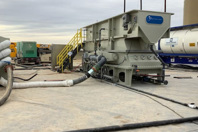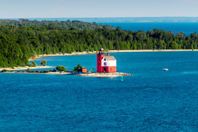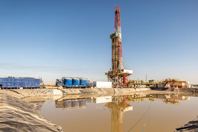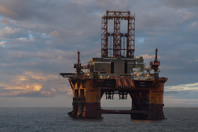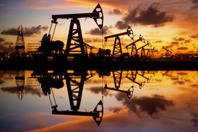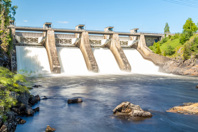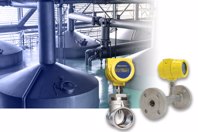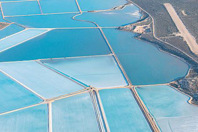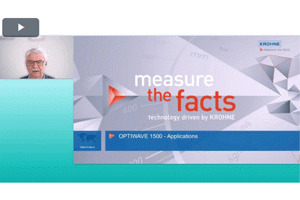RESOURCES FOR THE PETROLEUM & REFINING INDUSTRY
-
This white paper explores how advanced biological technologies — including MBBR, IFAS, SBR, and MBR systems — are transforming wastewater management in this sector.
-
Should states and Indigenous nations be able to influence energy projects they view as harmful or contrary to their laws and values? This question lies at the center of a heated debate over Enbridge Energy’s Line 5 pipeline, which carries oil and natural gas across Wisconsin and Michigan.
-
Fracking, short for hydraulic fracturing, is a process in which workers inject fluids underground under high pressure. The fluids fracture coal beds and shale rock, allowing the gas and oil trapped within the rock to rise to the surface. Advances in fracking launched a huge expansion of U.S. oil and gas production starting in the early 2000s but also triggered intense debate over its health and environmental impacts.
-
You cannot produce oil without water, because water is present naturally in both onshore and offshore oil reservoirs. This naturally occurring water is called produced water. Produced water has a simple to complex composition that is variable, and it is considered as a mixture of dissolved and particulate organic and inorganic chemicals (Al-Ghouti et al. 2019) with an average of 7 to 10 barrels of produced water being generated for each barrel of oil during the course of an operation (Guerra, Dahm, and Dundorf 2011).
-
Water is one of the world's most critical natural resources, but too many people take it for granted, raising awareness of its importance — and complexities — is too often left out of public discourse. My recent visit to a few engineering colleges as a STEM ambassador made me realize that many engineering programs are offered today than when I went to school.
-
More than 2,000 years ago, Greek and Roman engineers harnessed the power of water to drive grain mills, and the technology soon spread as far as China, where it was used to forge iron. By the 4th century, the Romans had scaled up water wheel technology to build a massive flour plant in Arles, France, powered by 16 overshot water wheels. During the Renaissance, Leonardo da Vinci sketched out visions of water-driven sawmills, forges, factories, and spinning works.
-
No matter whether consumers choose a pilsner, an ale, or another popular type of beer, there is a critical focus at nearly all breweries today on their production process energy (natural gas) costs and plant environmental compliance (waste gas emissions). Failing to pay attention to the efficiency of these processes at breweries or any other type of food and beverage processing plant can lead to cost competitiveness issues and hefty regulatory fines.
-
The Internet of Things (IoT), Industry 4.0, and connectivity in drives is the future, and many market segments must modernize to compete. The world is more connected than ever with new technological advances that produce higher process efficiency and time savings. To stay competitive in this environment, companies must include automated solutions such as remote management, monitoring, and control.
-
Brine is everywhere: desalination plants, gas and oil drillings, energy generation plants, mines, cooling towers, food manufacturing plants, chip fabrication, and many other industries that require high volumes of water. They all generate brine as a byproduct of their processes.
-
The city of Auburn, NY, approached Precision Trenchless, LLC of Schenectady, NY, looking for a long-term solution to create a new structural penstock within the current structure.

